Good day!
UNHCR has released a new video campaign with UNHCR Goodwill Ambassador, Cate Blanchett, to highlight the need to support the stateless refugees and end statelessness.
Netflix has released the full trailer for Guillermo Del Toro’s Pinocchio. The Hollywood Reporter has published an article with interviews from the cast and crew of TÁR. You can check the scans below. There is also a new clip released, UK release of TÁR is moved a week earlier to January 13th.
UNHCR #EndStatelessness Campaign
?? Without nationality:
No education. No healthcare. No justice.
UNHCR Goodwill Ambassador Cate Blanchett is standing up for stateless people once again ? #IBelong #EndStatelessness pic.twitter.com/GMHykSxfK8
— UNHCR, the UN Refugee Agency (@Refugees) November 3, 2022

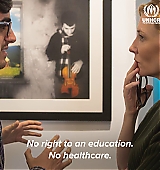


Pinocchio Trailer
TÁR: Anatomy of a Contender

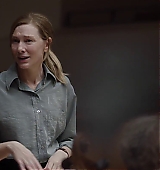
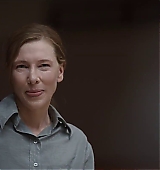
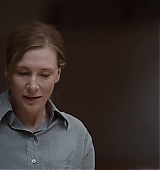
It was the heart of winter when Tár writer-director Todd Field and editor Monika Willi unexpectedly took up residency at a 15th century Scottish nunnery outside Edinburgh. They had intended to meet up in London, but another COVID-19 lockdown in early January 2022 waylaid their plans. As it turned out, the nunnery and the silence were a perfect environment to foster the filmmaker’s storytelling tempo and sense of discipline. Amid long walks watching the seasons slowly change, he and Willi got to work, spending nearly four months stringing together the melody of his first film in 16 years.
Tár stars Cate Blanchett as Lydia Tár, a fictional world renowned conductor of the Berlin Philharmonic who is brought down for exploiting power to pursue relationships with younger protegées, including a woman who commits suicide. The maestro is in denial regarding the influence of social media in the age of cancel culture; contributing to her undoing is a searing, impolitic exchange she has with a BIPOC Juilliard student that goes viral. While Field and Blanchett consider the film something of a fairy tale in that no top-tier orchestra today is led by a female conductor, Tár nevertheless upends the prevailing narrative in making a powerful woman a potential predator.
Tár has major Oscar ambitions and is widely expected to earn Blanchett her fifth nomination for best actress, as well as land a spot in the best picture race and other top categories. The Focus Features film has done relatively well for an art house pic, grossing nearly $4 million to date since its early October release, but is having a tough time striking a chord with mainstream audiences.
Field is a maestro in his own right, at least metaphorically. He studied music in college before setting his sights on the movie business (and his acting credits include Stanley Kubrick’s Eyes Wide Shut, in which he played a jazz pianist). Field’s directorial debut, the 2001 drama In the Bedroom, scored five Oscar nominations, including for best picture. The only other film he’s directed until now was the acclaimed Little Children, which played in theaters in 2006. Several high-profile projects came his way in the intervening years, including the possibility of directing a political thriller written by Joan Didion, but they fell apart. Nor did he have interest in directing a studio tentpole based on superheroes or other IP.
Then, when the pandemic struck, Focus told him he could write anything he wished. “I sat down and started writing. It was a sprint, to be honest with you. It came together in about 12 weeks,” he says. “The studio gave me no notes and let me do exactly what I wanted. I have no excuses. If anybody has any problems with the film, then they can point their finger at me. It’s the most creatively free I’ve ever felt.”
Focus executives weren’t the only ones who were blown away by the script. “I inhaled it,” says Blanchett. “I had never read anything like it. Psychologically, it was totally uncompromising. It was a rhythmic challenge, and it dives into a world that I knew precious little about.”
In total, the Tár shoot was 65 days, with Field and some of his team going to Asia, for crucial third-act scenes, after wrapping in Berlin. Next came the editing process amid the stillness at the nunnery, where Willi says much of the challenge had to do with soundwork. Field wanted the sound, and score, to be as subtle as the camerawork.
Blanchett didn’t initially know that Field wrote Tár with her in mind, and her alone (they first met a decade ago, to discuss the Didion project). The actress, who was in Budapest shooting Eli Roth’s sci-fi action-comedy Borderlands when she received Field’s script, immediately said yes.
The director says he has long wanted to explore the structure of power. “If the story was about a white male, you’d know how to feel in five seconds,” he says. “But it was important to try to figure out another way to examine power itself. It seemed like there was perhaps a more nuanced way to look at the behavior as opposed to the mask.”
Blanchett says much the same thing. “We understand white male corruption. If you had a man in that role, it would have been a story about that, whereas Tár is so much more,” Blanchett says. “I do think that’s why I found it so challenging. I felt it was all up in the air and we weren’t trying to pin it down. We were just trying to have the conversation. I hope audiences can go into it to experience the film, not thinking about the politics of it. The gift for me was that there were also many physical things that I had to prepare for — the piano, the conducting, the reading of the score, the musical reference points.”
She continues: “It’s interesting that the character has been called a predator by various people. I think it’s reductive. That’s not what Tár is about. That is why I’ve been so reticent to talk about the film, because I feel it operates on so many levels.”
Blanchett didn’t want to talk about the film in relation to some of the high-profile men she’s worked with who have since been canceled, including Woody Allen (she won her first best actress Oscar for Allen’s Blue Jasmine).
Field says he could have set the story in any industry but chose the classical music world: “A concert band itself is shaped in a pyramid shape, and the fulcrum, the tip of that shape, is the conductor.”
Blanchett started prepping for the role in the early fall of 2020. She took German lessons and picked up the piano again (she’d played as a child). Because of the pandemic, she couldn’t see a real symphony in action, so she watched video after video of different conductors without the sound on. “Thank goodness for YouTube,” says Blanchett. She also worked with Natalie Murray Beale, a conductor whom she knew, and found a concert pianist in Budapest to help with her lessons.
Field is exacting but compassionate. He didn’t want Willi to have to travel to the United States — Field lives on the East Coast — and be so far from her family in Germany, so he arranged for them to work at the nunnery when London fell through. He would walk in the morning, while Willi would run. They’d talk about the goals for their day, and then would take a long walk together before resuming work. “We saw lambing season and livestock being born. Then we would cut seven days a week,” Field says. “It was very rigorous.”
Blanchett understands that rigor all too well. “Certainly, Todd threw down the gauntlet. When we were shooting, I felt like I was going into battle every day, in a positive way,” she says.
“It was much bigger than me or the sum of any of its parts. It was like climbing a mountain that I couldn’t see the top of. I don’t think I’ve ever felt so alive.”
You can read the full article on the scans below.


 Welcome to Cate Blanchett Fan, your prime resource for all things Cate Blanchett. Here you'll find all the latest news, pictures and information. You may know the Academy Award Winner from movies such as Elizabeth, Blue Jasmine, Carol, The Aviator, Lord of The Rings, Thor: Ragnarok, among many others. We hope you enjoy your stay and have fun!
Welcome to Cate Blanchett Fan, your prime resource for all things Cate Blanchett. Here you'll find all the latest news, pictures and information. You may know the Academy Award Winner from movies such as Elizabeth, Blue Jasmine, Carol, The Aviator, Lord of The Rings, Thor: Ragnarok, among many others. We hope you enjoy your stay and have fun! 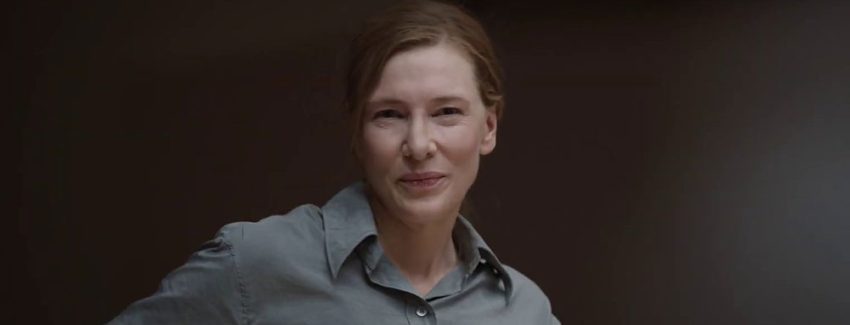

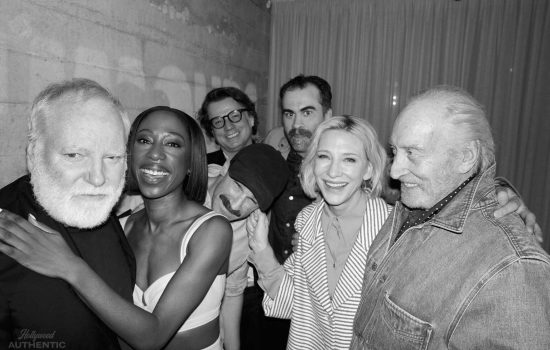
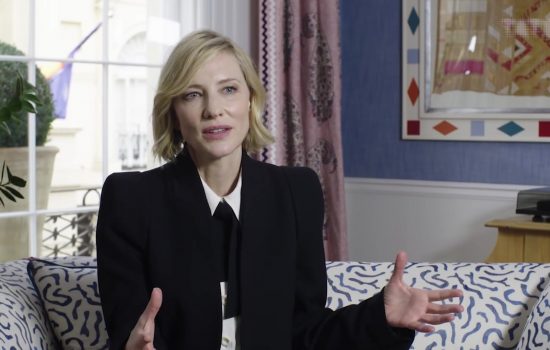

 A Manual for Cleaning Women (202?)
A Manual for Cleaning Women (202?) The Seagull (2025)
The Seagull (2025) Bozo Over Roses (2025)
Bozo Over Roses (2025) Black Bag (2025)
Black Bag (2025)  Father Mother Brother Sister (2025)
Father Mother Brother Sister (2025)  Disclaimer (2024)
Disclaimer (2024)  Rumours (2024)
Rumours (2024)  Borderlands (2024)
Borderlands (2024)  The New Boy (2023)
The New Boy (2023) 











